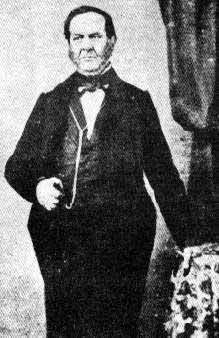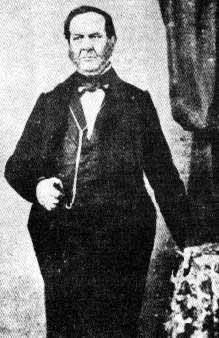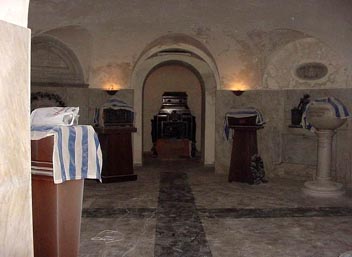His early education was at the Convent of San Bernardino, and he completed his studies in Buenos Aires at the Royal College of San Carlos, from which returned in 1810, prompted by the invasion of the city, having pursued studies in Arts. He returned to Montevideo, where he wrote poems while working for his father. There was no printing press in Montevideo, so none of his works were published at that time.
He went on to become the author of the words of the national anthems of Uruguay and Paraguay. He did not subscribe to the independence cause, but remained loyal to the colonial governments of Francisco Javier Elío and Gaspar de Vigodet, and after Montevideo fell in 1814, at 25 years old, he was exiled to the Portuguese Court in Rio de Janeiro, where he performed diplomatic functions for Spain.
He returned to Montevideo in 1818, after the fall of José Artigas, the city falling under Portuguese rule, under which it would remain. Besides his literary work, he occupied posts such as state treasurer (succeeding his father), a member of the committee on the censorship of theatrical works (in 1846), and director of the Public Library and Museum (1840–1847).
In 1857, Acuña's poems were published in a book, and the national anthem of Uruguay, which dates from 1833, appeared. Acuña also had an extensive literary work, compiled by himself in 1848 and published posthumously in 1890 in 12 volumes under the general title of "Complete Works". It consists of numerous poems, stories, etc. Many of his works have a strong satirical tone.
An anthology of his poems was published in 1965 in the collection of Uruguayan classics by the Artigas Library. Acuña also wrote the lyrics for the national anthem of Paraguay.
He died in Montevideo on October 6, 1862.
His early education was at the Convent of San Bernardino, and he completed his studies in Buenos Aires at the Royal College of San Carlos, from which returned in 1810, prompted by the invasion of the city, having pursued studies in Arts. He returned to Montevideo, where he wrote poems while working for his father. There was no printing press in Montevideo, so none of his works were published at that time.
He went on to become the author of the words of the national anthems of Uruguay and Paraguay. He did not subscribe to the independence cause, but remained loyal to the colonial governments of Francisco Javier Elío and Gaspar de Vigodet, and after Montevideo fell in 1814, at 25 years old, he was exiled to the Portuguese Court in Rio de Janeiro, where he performed diplomatic functions for Spain.
He returned to Montevideo in 1818, after the fall of José Artigas, the city falling under Portuguese rule, under which it would remain. Besides his literary work, he occupied posts such as state treasurer (succeeding his father), a member of the committee on the censorship of theatrical works (in 1846), and director of the Public Library and Museum (1840–1847).
In 1857, Acuña's poems were published in a book, and the national anthem of Uruguay, which dates from 1833, appeared. Acuña also had an extensive literary work, compiled by himself in 1848 and published posthumously in 1890 in 12 volumes under the general title of "Complete Works". It consists of numerous poems, stories, etc. Many of his works have a strong satirical tone.
An anthology of his poems was published in 1965 in the collection of Uruguayan classics by the Artigas Library. Acuña also wrote the lyrics for the national anthem of Paraguay.
He died in Montevideo on October 6, 1862.
Advertisement
Advertisement



